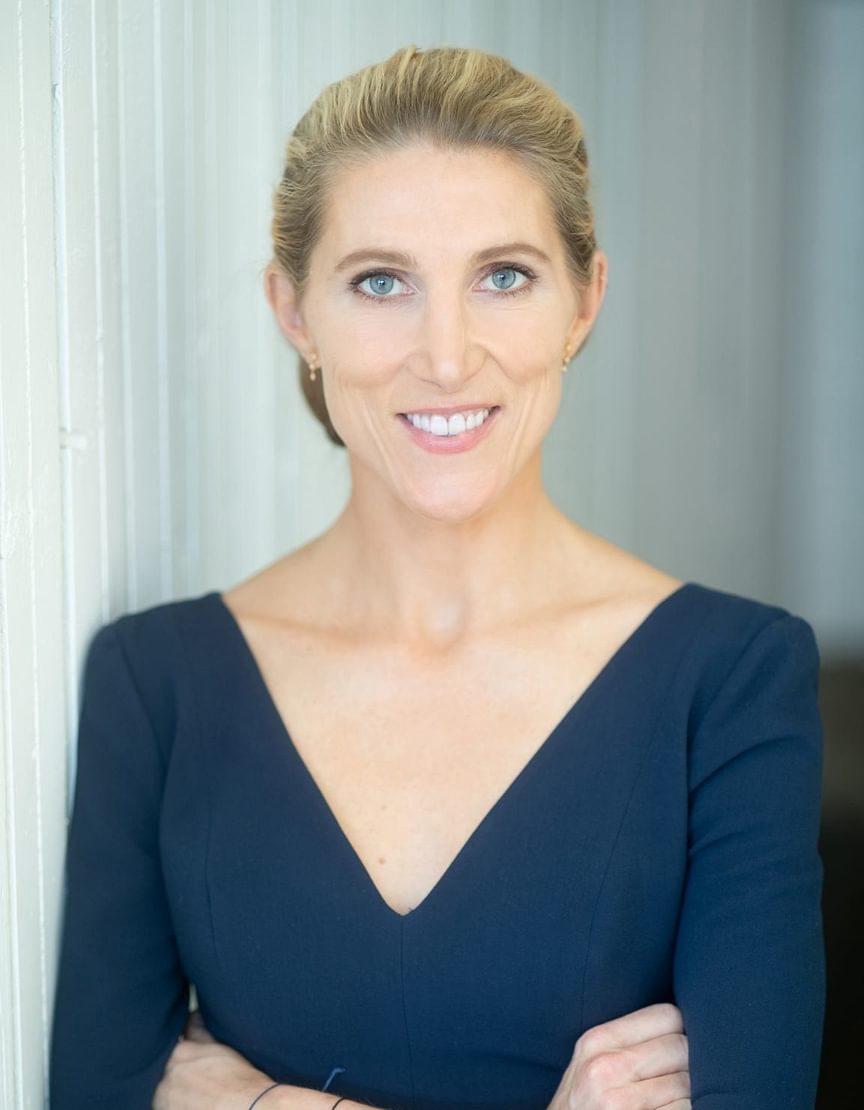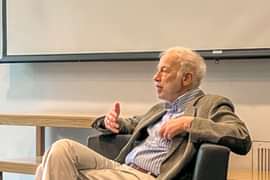
November 26, 2021
Transforming our investment in health care
Alumna explains why the health care workforce is essential for social well-being, economic growth, and equityby Vanessa Kerry, MD, MSc, ’95
As a physician I have worked in myriad settings. I have had the privilege to train in some of the world’s top hospitals, serve in urban community health centers, deliver care in rural Africa, work overnights in post-earthquake Haiti, and swelter in PPE in the trenches of COVID-19. Each of these experiences has cemented my deep understanding that health care is fundamentally human-centered. Doctors, nurses, midwives, and health workers of all types serve as the front lines of human response in sickness. And at the center is the patient who is a wife, a father, a child—a human life in need, with a community that revolves around them.
Thus, when World Health Organization Director General Dr. Tedros Ghebreyesus shared in May that more than 115,000 health care workers had died due to COVID-19, I was stunned. Though paling in comparison to the millions of lives COVID-19 has taken in total, these workers’ deaths are significant. Collectively, they represent a loss of over 1 million years of education, $4.5 billion in training, and a devastating blow to a sector already facing personnel shortages estimated to reach 18 million people by 2030. The immediate impact is that more people, especially in communities that need it the most, will lack access to health services.
As we respond to COVID-19, we will need to acknowledge and act in support of the profound role of health workers far more than we have to date. In recent years, the promise of technology in global health has drawn massive speculative dollars and attention. Financiers, philanthropists, and governments have intensified their investments in health care research and infrastructure. Interventions have made progress in some disease areas like HIV. However, support for the front lines of health delivery—the workforce—has not kept pace, and impact has remained siloed and underleveraged. The lack of prescriptive policies or funding to invest in the workforce are telling, reflecting a persistent misunderstanding of the essential role of health workers in ensuring health for all.
The global COVID-19 vaccine rollout offers a poignant example. The need for vaccines is without question, but health workers are critical to delivering shots in arms and protecting essential services. Independent reports have indicated that for every $1 invested in vaccine supply, $2.50 would be needed to deliver vaccines to patients. Yet, while governments wrestle with their vaccine donations to COVID-19 Donations Global Access (COVAX), none have committed to the essential human resources needed to deliver them. As a result, many countries remain unprepared: vaccine readiness in at least 11 African countries is at 75 percent or less.
The pandemic has rolled back decades of progress, tested the resilience of health systems, and unmasked continued inequities across the globe. Recent studies have shown increases in maternal mortality and tuberculosis deaths, for example, since COVID-19 began. The World Bank has estimated the cumulative cost of COVID-19 to be more than $16 trillion to date. In contrast, researchers have estimated the cost to achieve necessary and overdue global benchmarks in health, including universal health care and filling the global shortages of health workers, to be a fraction of that figure: at $400 billion, the annual investment required to close the gap is one-fortieth of the cost of COVID-19 and promises dividends in development, economic growth, and well-being, beyond those of health.

While the investment is significant, evidence shows that growth of the health sector and health system improvements have sizable returns. Macroeconomic analysis has indicated that 25 percent of economic growth in low-and middle-income countries from 2000 to 2011 was attributed to improvements in population health. Additionally, investing in health systems has multiplier effects. It improves health, strengthens economic growth and national security, and fosters greater social protection and cohesion. The health and social sectors generate jobs, almost 70 percent of which will be occupied by women. The employment of women achieves progress toward both gender equality and poverty alleviation and brings families into the formal sector.
As we seek to define and enact “pandemic preparedness” or to “build back better,” we must transform our priorities in health and our approach to health investments.
I have seen this transformation firsthand in my work at Seed Global Health, the international non-governmental organization I run. At Seed, we focus on the power of investing in health and the health workforce to transform countries. Through partnerships with sub-Saharan African governments and in-country academic institutions, we have helped train more than 30,000 doctors, nurses, and midwives over the past nine years and have impacted hundreds of thousands of lives. Today, these are the same health workers who have been on the frontlines of the pandemic, responding to COVID-19 and protecting essential services—the tuberculosis cases and deliveries that are otherwise on the rise. Our model leverages education over time to help provide better care to patients, train future generations, support the health sector, and catalyze change in the health system. Though it has taken a decade, we can see the progress in closing the unacceptable gaps in health care that not only exist, but also are now expanding.
COVID-19 has underscored the importance of health as essential for social well-being, economic growth, and equity and for resilient communities and countries. It has shown us we must meet health challenges directly—newly emerged or entrenched. As we seek to define and enact “pandemic preparedness” or to “build back better,” we must transform our priorities in health and our approach to health investments. Otherwise, we will only cement our status quo and the global health system—and all its impacts—will continue to operate as it always has.
The world has the capacity—tools, science, technology, financial mechanisms—needed. We must now summon the political will and courage to redeploy these resources more effectively for systemic transformation. It starts by investing in and valuing people, our own futures, and those health workers who protect them.
Vanessa Bradford Kerry is founder and CEO of the nonprofit Seed Global Health, which focuses on the power of investing in health and the health workforce for social well-being, economic growth, and equity to transform countries. She is also a critical care physician at Massachusetts General Hospital, serves as the associate director of partnerships and global initiatives at MGH Global Health, and directs the Global Public Policy and Social Change program at Harvard Medical School. Kerry recently lent her expertise to Andover’s health advisory board to help the Academy navigate the COVID-19 pandemic and its staged approach to reopening.
Other Stories

Andover’s 10th conference promotes open financial dialogue




